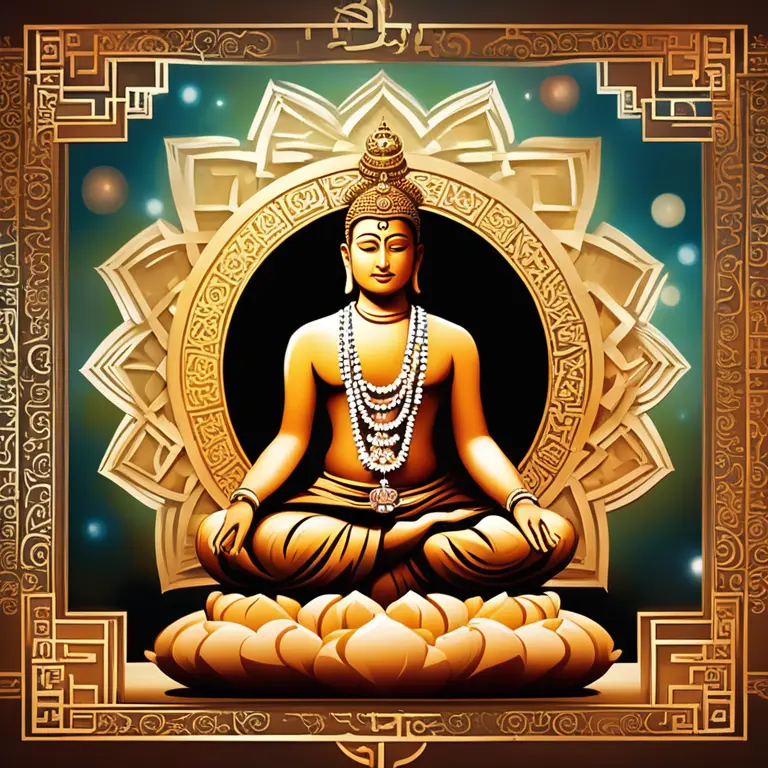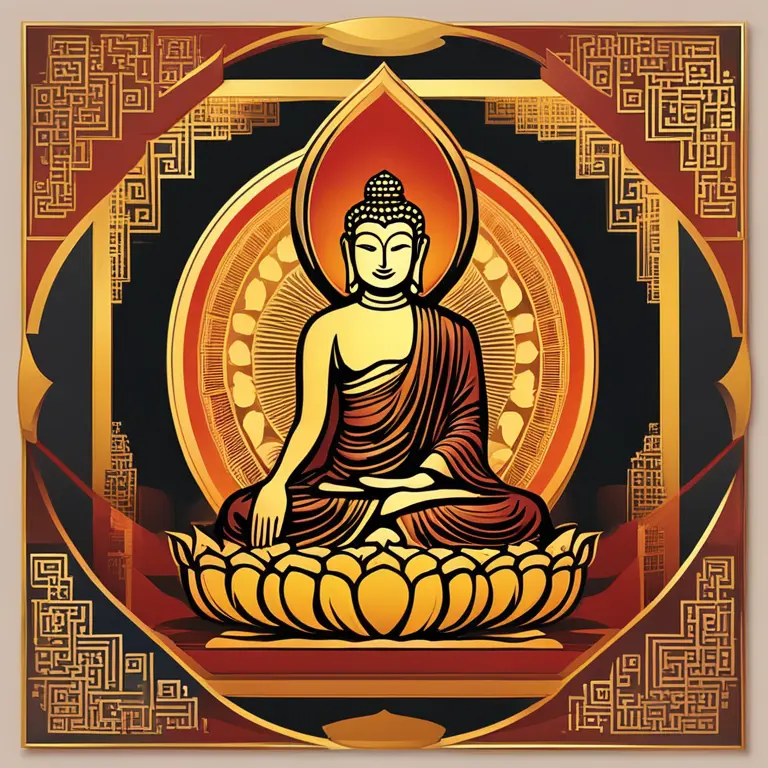
The Origins of Meditation Practice Explained
Tracing the ancient roots and the journey of meditation through history, to understand who introduced this transformative practice.
article by Hina Kurosawa
The Dawn of Meditation
Meditation, a practice as ancient as civilization itself, cannot be traced to a single founder or origin point. Instead, it blossomed across various regions and cultures. Historical records from millennia ago suggest that the practice of meditation was present in diverse societies, with each incorporating their unique philosophies and techniques. This wealth of tradition contributed to the tapestry of meditation practices known today. Evidence of meditation's past is scattered among ancient texts, artifacts, and structures dedicated to spiritual practice, pointing to its vast and varied beginnings.

Vedic Beginnings
Some of the earliest written records of meditation come from the Vedas of India. These ancient texts, composed around 1500 BCE or earlier, detailed various meditative practices used by the priests of the Vedic religion. The practices were intended to deepen understanding and connection to the divine. This inclusion in the Vedas marked the importance of meditation as a spiritual tool in early Indian society, and it laid the groundwork for later forms such as Yoga, which elaborated on these meditative techniques in texts like the Bhagavad Gita and Patanjali's Yoga Sutras.

Buddhism's Influence
Perhaps one of the most influential individuals in the history of meditation was Siddhartha Gautama, later known as the Buddha. Around the 6th century BCE, he adopted and later adapted meditative practices after finding enlightenment. His teachings on mindfulness and meditation spread throughout India and across Asia, becoming a cornerstone of Buddhist philosophy. The Buddhist approach to meditation emphasized the practice as a means to cultivate wisdom, ethical conduct, and mental discipline, serving as a path toward liberation from suffering.

Taoist and Confucian Themes
At roughly the same time but in a different part of the world, Chinese traditions were crystallizing their own forms of meditative practice. Taoism and Confucianism, two of China's great philosophical schools, embraced meditative techniques geared at aligning oneself with the natural order and achieving personal harmony. The Taoist practice of 'Zuowang' or 'sitting in oblivion' involved emptying the mind and harmonizing with the Tao, or universal principle. Confucian meditation similarly focused on self-betterment and reflection.

Expansion Across Cultures
As trade routes opened and cultures intermingled, meditation practices began to spread and evolve. By the time of the Roman Empire, there were echoes of meditative practices in Stoic philosophy, which emphasized introspection and focus. With the rise of the Christian monastic tradition, contemplative practices, which share similarities with meditation, became part of religious life in the West, aiming to deepen the connection with the divine. Similarly, Islamic practices such as Sufism began to cultivate their form of meditation, centered on remembrance of God and the recitation of His names.
Modern Meditative Synthesis
The 20th century saw a resurgence and a shift in the practice of meditation. It was no longer confined to religious or philosophical arenas and began to be adopted by the wider public for its psychological and health benefits. Major figures such as Maharishi Mahesh Yogi, who introduced Transcendental Meditation, played significant roles in popularizing meditation in the West. In recent years, mindfulness and other meditation techniques have been incorporated into therapeutic settings, with research highlighting their potential in managing stress, chronic pain, and mental health issues.
Published: 1/14/2024
Modified: 1/15/2024
More predictions
Come back here soon to learn more about yourself and your future


Easing Loneliness with Mindfulness Meditation
Explore how mindfulness meditation can provide solace and connection to alleviate the feelings of loneliness.


Easing Loneliness with Meditation
Discover how mindfulness meditation can provide solace and connection to mitigate feelings of loneliness, enhancing emotional and mental well-being.


Harmonizing Life with Meditation Mantras
Delve into the transformative power of meditation mantras to align mind, body, and spirit for a harmonious existence.